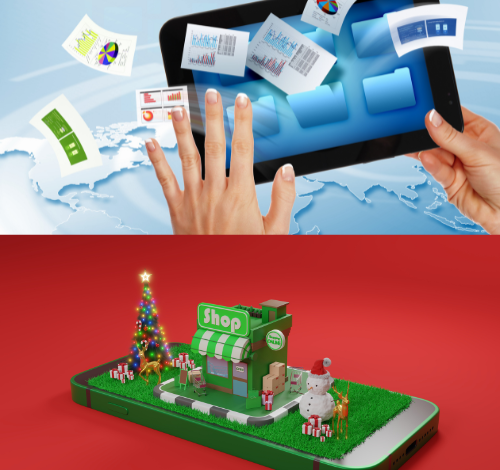Top Payment Processors for E-commerce Businesses in 2025
Top Payment Processors for E-commerce Businesses in 2025

Top Payment Processors for E-commerce Businesses in 2025: A Comprehensive Guide
In today’s digital era, e-commerce businesses need robust payment processing systems to handle online transactions efficiently and securely. Whether you’re running a small startup or a large online store, selecting the right payment processor can have a significant impact on your business. The best payment processors not only ensure a smooth checkout experience for customers but also help businesses manage payment risks, reduce fraud, and provide insights into financial trends.
Choosing the right payment processor is crucial for the success of your e-commerce business. In this article, we’ll discuss the top payment processors for e-commerce businesses in 2025. We’ll explore their features, pricing, pros and cons, and help you decide which one is best suited for your specific needs. Along the way, we’ll highlight high CPC (Cost Per Click) keywords relevant to the topic that can optimize this content for Google Ads and drive more traffic to your e-commerce website.
1. PayPal
Overview
PayPal is one of the most popular payment processors in the world, trusted by millions of businesses and consumers. It allows users to make payments using credit cards, debit cards, and PayPal balances. PayPal is known for its fast transactions and wide global reach, making it a great option for e-commerce businesses looking to expand internationally.
Features
- Global Acceptance: PayPal is available in over 200 markets and supports 25 currencies, making it a perfect choice for global e-commerce businesses.
- Security: PayPal is known for its high security and fraud protection services, offering buyer and seller protection.
- Mobile Compatibility: The platform has a mobile app that allows businesses and consumers to make payments or manage accounts on the go.
Pros
- Easy integration with most e-commerce platforms.
- No setup or monthly fees for basic accounts.
- Wide range of supported payment methods, including credit cards, bank transfers, and PayPal accounts.
- Excellent buyer and seller protection.
Cons
- Transaction fees can be relatively high compared to other processors.
- Some users report delays in fund transfers, especially for international payments.
Pricing
PayPal charges a fee of 2.9% + $0.30 per transaction for domestic payments in the U.S. International payments are subject to an additional fee of 1.5%.
High CPC Keywords for Google Ads:
- “Best payment processors for e-commerce”
- “PayPal transaction fees”
- “How to integrate PayPal with your e-commerce site”
2. Stripe
Overview
Stripe is another popular payment processor for e-commerce businesses, particularly in the tech and startup community. Stripe is known for its developer-friendly APIs and robust features, which make it ideal for businesses that need customization and advanced payment solutions.
Features
- Developer-Friendly: Stripe offers powerful APIs that enable businesses to create custom payment solutions tailored to their needs.
- Global Reach: Like PayPal, Stripe supports multiple currencies and is available in more than 40 countries.
- Subscriptions and Recurring Payments: Stripe has built-in tools for handling subscription services and recurring payments, making it an excellent option for businesses with subscription-based models.
Pros
- Excellent for businesses looking for a high level of customization.
- Transparent pricing with no hidden fees.
- Offers advanced features such as subscription billing, advanced fraud protection, and invoicing.
- Seamless integration with most major e-commerce platforms.
Cons
- Not as beginner-friendly as other options.
- Requires technical knowledge to fully utilize its capabilities.
- Limited customer support options compared to competitors.
Pricing
Stripe charges a standard processing fee of 2.9% + $0.30 per successful transaction. International payments incur an additional 1% fee.
High CPC Keywords for Google Ads:
- “Stripe e-commerce integration”
- “Stripe payment processing fees”
- “Best e-commerce payment gateways”
3. Square
Overview
Square has become a household name, especially in the point-of-sale (POS) space. However, Square is also an excellent payment processor for e-commerce businesses, offering online payment solutions, invoicing, and a wide range of business management tools.
Features
- All-in-One Solution: Square offers more than just payment processing; it provides tools for inventory management, employee payroll, and analytics.
- Quick Setup: Square’s payment processing system is easy to set up, making it a great choice for new e-commerce businesses.
- Mobile Payments: Square is widely used for mobile payments, and its e-commerce solutions also offer mobile compatibility.
Pros
- No monthly fees or setup costs for basic accounts.
- Easy-to-use interface, great for beginners.
- Integrated with Square’s other business management tools.
- Competitive transaction fees.
Cons
- Limited international availability.
- Some advanced features may require higher-tier plans.
Pricing
Square charges 2.6% + 10¢ per transaction for online payments. Additional fees may apply for certain types of transactions, such as international payments or high-risk industries.
High CPC Keywords for Google Ads:
- “Square payment processor”
- “How to set up Square for e-commerce”
- “Square fees and pricing”
4. Authorize.Net
Overview
Authorize.Net is one of the oldest and most established payment processors. It’s a great choice for small and medium-sized e-commerce businesses, as it offers a range of tools that make it easy to accept payments online, including credit card processing, fraud protection, and recurring billing.
Features
- Fraud Protection: Authorize.Net includes advanced fraud detection tools to help prevent fraudulent transactions.
- Subscription Billing: Like Stripe, Authorize.Net allows businesses to manage subscription payments.
- Integration: It can easily integrate with over 400 shopping carts and e-commerce platforms.
Pros
- Excellent security features with built-in fraud protection.
- Flexible pricing options, including month-to-month contracts.
- Comprehensive support for subscription-based businesses.
Cons
- Monthly fee for the basic plan ($25/month), plus a per-transaction fee.
- Customer support can sometimes be slow.
Pricing
Authorize.Net’s basic plan costs $25 per month, with a per-transaction fee of 2.9% + 30¢. Additional fees apply for gateway setup, virtual terminal use, and more.
High CPC Keywords for Google Ads:
- “Authorize.Net payment gateway”
- “Authorize.Net pricing and features”
- “How to use Authorize.Net for e-commerce”
5. Braintree
Overview
Braintree, a service owned by PayPal, is an innovative payment processor designed to handle transactions in e-commerce and mobile apps. It’s known for its simplicity and extensive support for global payments, which makes it a top choice for e-commerce businesses that want to expand internationally.
Features
- Global Payments: Braintree supports payments in over 130 currencies, making it a good choice for global businesses.
- Mobile Optimization: Braintree’s mobile SDK is designed for easy integration with mobile apps, making it ideal for mobile-first businesses.
- No Monthly Fees: Braintree does not charge any monthly fees, only transaction fees.
Pros
- Supports a wide range of payment methods, including credit/debit cards, PayPal, Apple Pay, and Google Pay.
- Offers robust fraud protection and advanced security features.
- Simple and transparent pricing with no hidden fees.
Cons
- Requires technical knowledge to set up and configure.
- Limited customer support options.
Pricing
Braintree charges 2.9% + 30¢ per transaction for U.S.-based businesses. International transactions incur an additional 1% fee.
High CPC Keywords for Google Ads:
- “Braintree payment gateway”
- “Braintree for global payments”
- “Braintree pricing structure”
6. Adyen
Overview
Adyen is an enterprise-level payment processor that supports a wide range of payment methods for both online and offline transactions. Adyen is best suited for businesses with high transaction volumes, such as large e-commerce stores or companies operating in multiple countries.
Features
- Global Reach: Adyen supports over 250 payment methods in 150 currencies, making it one of the most versatile payment processors for international e-commerce businesses.
- Advanced Fraud Protection: Adyen uses machine learning to detect fraudulent transactions in real-time.
- Omnichannel Payments: Adyen supports both online and in-store payments, making it ideal for businesses that operate in both environments.
Pros
- Ideal for large businesses with international reach.
- Customizable payment solutions.
- Strong fraud prevention tools.
- Supports a wide range of payment methods.
Cons
- Not suitable for small businesses or startups due to its high setup fees and complex features.
Pricing
Adyen’s pricing is customized based on the size and needs of the business. Pricing is typically volume-based, with fees for credit card payments ranging from 2.9% to 3.95%, plus a fixed fee of 0.12 to 0.30 per transaction.
High CPC Keywords for Google Ads:
- “Adyen payment processor”
- “Best payment gateways for large e-commerce”
- “Adyen pricing and features”
Conclusion
Choosing the right payment processor is a critical decision for any e-commerce business. The best processor for your business depends on factors such as transaction volume, the international scope of your business, technical capabilities, and budget. In 2025, options like PayPal, Stripe, Square, Authorize.Net, Braintree, and Adyen stand out as top contenders. Each of these payment processors offers unique features that cater to different business needs.
To maximize your e-commerce success, it’s essential to carefully evaluate each option and select the one that aligns with your goals. The right payment processor can streamline your operations, enhance customer satisfaction, and contribute to your long-term growth.
By integrating one of these top payment processors into your e-commerce site, you’ll be able to accept payments efficiently, reduce fraud risks, and focus on what matters most—growing your business.
High CPC Keywords for Google Ads:
- “Top payment processors for 2025”
- “How to choose the best payment gateway”
- “Payment processing solutions for e-commerce”
By focusing on these top payment processors and high CPC keywords, your e-commerce business can take advantage of the best solutions available in 2025.






